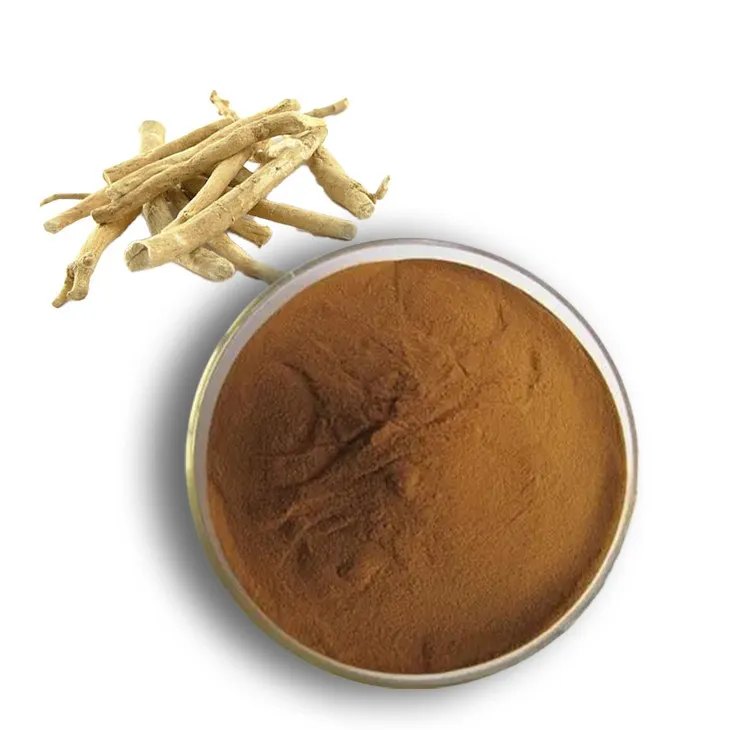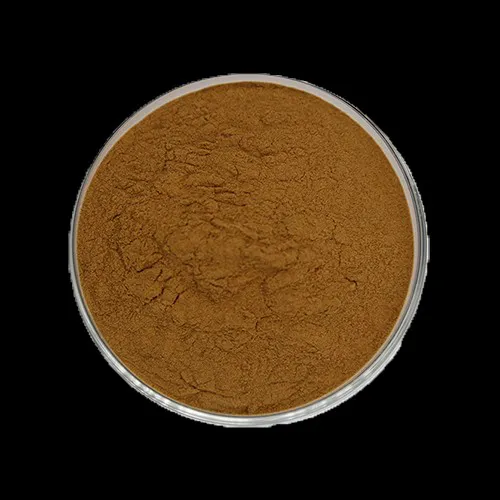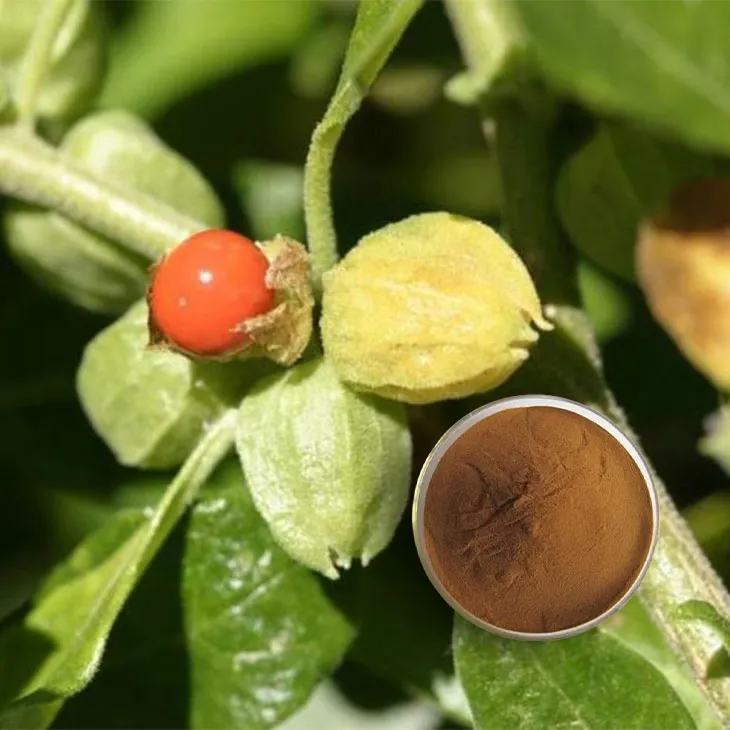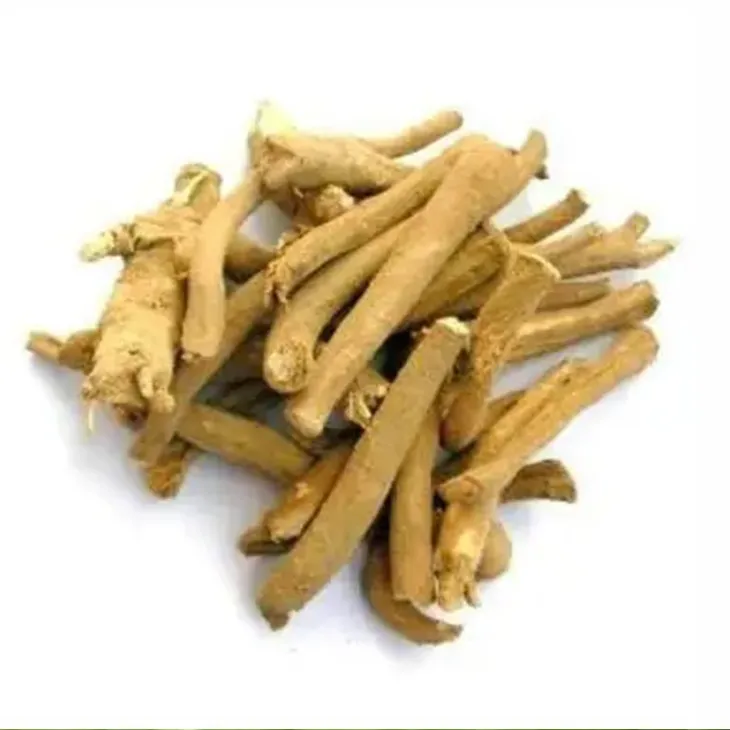- 0086-571-85302990
- sales@greenskybio.com
What is Withania somnifera extract? Definition, types, history and nutritional value.
2024-12-10

1. Definition
Ashwagandha extract is derived from the Withania somnifera plant. This plant is a small shrub that is native to India, the Middle East, and parts of Africa. The extract is obtained through various extraction methods that isolate the active compounds present in the plant. These active compounds are what give Ashwagandha extract its potential health benefits.

2. Types
2.1 Based on Extraction Solvents
- Alcohol - based extracts: These are common types of Ashwagandha extract. Alcohol, such as ethanol, is used as a solvent to draw out the active components from the plant material. Alcohol - based extracts are often more concentrated and can have a longer shelf - life compared to some other types. The extraction process using alcohol helps in dissolving a wide range of compounds, including alkaloids, steroidal lactones, and flavonoids, which are important for the potential health effects of Ashwagandha.
- Water - based extracts: Water can also be used as a solvent for extraction. Water - based extracts are generally considered more "natural" as they do not involve the use of organic solvents like alcohol. However, they may not be as concentrated as alcohol - based extracts. Water extraction is suitable for obtaining water - soluble compounds from the Withania somnifera plant, such as certain polysaccharides that may have their own unique health - promoting properties.
2.2 Based on the Plant Parts Used
- Root extracts: The roots of the Withania somnifera plant are the most commonly used part for extraction. The roots are rich in many of the active compounds that are associated with the traditional and modern - day uses of Ashwagandha. For example, they contain withanolides, which are a group of steroidal lactones that are believed to be responsible for many of the plant's pharmacological effects, such as anti - stress, anti - inflammatory, and immunomodulatory effects.
- Leaf extracts: While the roots are more popular, the leaves of the Withania somnifera plant can also be used for extraction. Leaf extracts may contain different compounds in different proportions compared to root extracts. They may also have their own set of potential health benefits. Some studies suggest that leaf extracts may have antioxidant properties, which can help in protecting the body's cells from oxidative damage caused by free radicals.

3. History
Ashwagandha has a long and rich history in traditional medicine, particularly in Ayurveda, which is an ancient system of medicine that originated in India thousands of years ago. In Ayurveda, Ashwagandha is considered a "rasayana," which is a type of herb that is believed to promote longevity, rejuvenation, and overall well - being.
- It has been used for centuries to treat a variety of ailments, including stress, anxiety, fatigue, and poor immune function. Ayurvedic practitioners would often prescribe Ashwagandha in different forms, such as powders, pastes, or decoctions, depending on the patient's condition.
- Over time, the use of Ashwagandha spread beyond India. It was introduced to other parts of the world through trade and cultural exchanges. In traditional Middle Eastern medicine, it was also used for similar purposes, such as enhancing vitality and treating certain nervous system disorders.
- Today, with the growing interest in natural remedies and traditional medicine, Ashwagandha has gained global popularity. Modern scientific research has started to explore the potential health benefits of Ashwagandha extract, validating some of the traditional uses and uncovering new potential applications.

4. Nutritional Value
4.1 Active Compounds
- Withanolides: These are the most studied and important compounds in Ashwagandha. Withanolides are steroidal lactones that have a wide range of biological activities. They are thought to be responsible for the plant's anti - stress, anti - inflammatory, and antioxidant effects. For example, some withanolides have been shown to modulate the body's stress response by interacting with the hypothalamic - pituitary - adrenal (HPA) axis, which is the body's main stress - response system.
- Alkaloids: Ashwagandha also contains alkaloids, which are nitrogen - containing compounds. Alkaloids in Ashwagandha may contribute to its effects on the nervous system. They may have a calming effect on the mind and help in reducing anxiety. Some alkaloids may also play a role in enhancing cognitive function, although more research is needed to fully understand their mechanisms of action.
- Flavonoids: Flavonoids are a class of plant compounds known for their antioxidant properties. In Ashwagandha, flavonoids may help in protecting the body from oxidative damage caused by free radicals. They may also contribute to the plant's anti - inflammatory effects and potentially play a role in maintaining healthy blood vessels.
4.2 Health Benefits
- Stress Relief: One of the most well - known benefits of Ashwagandha extract is its ability to help the body cope with stress. The withanolides in Ashwagandha are thought to regulate the stress hormones cortisol and adrenaline. By doing so, it can reduce the physical and mental symptoms of stress, such as fatigue, anxiety, and insomnia. For example, in a study, participants who took Ashwagandha extract showed a significant reduction in cortisol levels compared to those who did not, indicating a potential stress - relieving effect.
- Improved Mental Health: Ashwagandha may also have positive effects on mental health. It has been suggested that it can improve mood, reduce symptoms of anxiety and depression, and enhance cognitive function. The alkaloids and withanolides in the extract may interact with neurotransmitters in the brain, such as serotonin and dopamine, which are involved in mood regulation. Some studies have shown that Ashwagandha can improve memory, attention, and reaction time in healthy individuals.
- Immune System Support: The extract may help in maintaining a healthy immune system. It has immunomodulatory properties, which means it can regulate the immune response. It can enhance the activity of immune cells, such as macrophages and lymphocytes, which are important for fighting off infections. Additionally, the antioxidant compounds in Ashwagandha can protect immune cells from oxidative damage, ensuring their proper function.
- Enhanced Physical Performance: Ashwagandha has been shown to potentially improve physical performance. It may increase muscle strength and endurance. This could be due to its effects on muscle cells and its ability to reduce muscle fatigue. Some athletes and fitness enthusiasts are starting to use Ashwagandha supplements to enhance their training results.
- Metabolic Health: There is evidence to suggest that Ashwagandha can play a role in maintaining healthy metabolism. It may help in regulating blood sugar levels by improving insulin sensitivity. It can also influence lipid metabolism, potentially helping to lower cholesterol levels. These effects on metabolism can contribute to overall health and reduce the risk of metabolic disorders such as diabetes and heart disease.

FAQ:
What are the main extraction techniques for Ashwagandha extract?
Common extraction techniques for Ashwagandha extract include solvent extraction, where solvents like ethanol or water are used to draw out the active compounds from the Withania somnifera plant. Another method could be supercritical fluid extraction, which uses a supercritical fluid (such as carbon dioxide) under specific pressure and temperature conditions to extract the desired components. These techniques are chosen based on factors like the type of compounds to be extracted, purity requirements, and cost - effectiveness.
How does Ashwagandha extract enhance the body's resilience to stress?
Ashwagandha extract contains bioactive compounds like withanolides. These compounds are believed to interact with the body's stress - response systems. They may regulate the hypothalamic - pituitary - adrenal (HPA) axis, which is involved in the body's reaction to stress. By modulating this axis, Ashwagandha extract can potentially help the body better adapt to stressors and reduce the negative impacts of chronic stress on the body and mind.
What specific benefits does Ashwagandha extract have for the nervous system?
The extract may have several benefits for the nervous system. It could potentially enhance neurotransmitter function. For example, it may support the regulation of GABA (gamma - aminobutyric acid), an inhibitory neurotransmitter that promotes relaxation. Additionally, it may help protect nerve cells from damage and support the regeneration of nerve tissue, which can contribute to improved mental clarity, reduced anxiety, and better overall nervous system health.
Can Ashwagandha extract be used to treat any specific diseases?
While Ashwagandha extract is not a replacement for medical treatment for diseases, it has been studied for its potential role in certain conditions. For example, it may have a role in managing mild anxiety and stress - related disorders. Some research also suggests it could potentially be beneficial in supporting healthy blood sugar levels in the context of diabetes prevention or management. However, more research is needed to firmly establish its effectiveness in treating specific diseases.
Are there any side effects associated with Ashwagandha extract?
In general, Ashwagandha extract is considered safe for most people when taken as recommended. However, some individuals may experience mild side effects such as digestive upset, diarrhea, or in rare cases, allergic reactions. Pregnant or breastfeeding women should consult a healthcare provider before taking Ashwagandha extract, as its safety in these situations has not been fully established.
Related literature
- The Therapeutic Potential of Ashwagandha (Withania somnifera) in Neurological Disorders"
- "Ashwagandha Extract: A Review of its Nutritional and Health - Promoting Properties"
- "Withania somnifera: Traditional Uses, Phytochemistry, and Pharmacology"
- ▶ Hesperidin
- ▶ citrus bioflavonoids
- ▶ plant extract
- ▶ lycopene
- ▶ Diosmin
- ▶ Grape seed extract
- ▶ Sea buckthorn Juice Powder
- ▶ Beetroot powder
- ▶ Hops Extract
- ▶ Artichoke Extract
- ▶ Reishi mushroom extract
- ▶ Astaxanthin
- ▶ Green Tea Extract
- ▶ Curcumin Extract
- ▶ Horse Chestnut Extract
- ▶ Other Problems
- ▶ Boswellia Serrata Extract
- ▶ Resveratrol Extract
- ▶ Marigold Extract
- ▶ Grape Leaf Extract
- ▶ blog3
- ▶ blog4
- ▶ blog5
-
Pure 85% Tomentil Extract.
2024-12-10
-
Fenugreek Extract Powder
2024-12-10
-
Cassia Seed Extract
2024-12-10
-
Sophora Flavescens Root Extract
2024-12-10
-
Carrageenan Extract Powder
2024-12-10
-
Peppermint Extract Powder
2024-12-10
-
Bamboo Leaf extract
2024-12-10
-
Saw Palmetto Extract
2024-12-10
-
Polygonum multiflorum extract
2024-12-10
-
Mulberry Extract
2024-12-10
-
Alisma Extract
2024-12-10





















